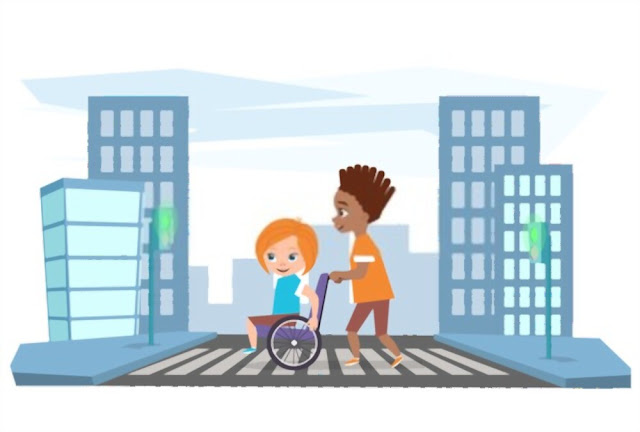Transition is a coordinated set of activities designed to move students from high school into adult life. It is a student-centered process that involves instruction, community experiences and vocational evaluation.
Student’s ages 18-22 receive focused instruction that
addresses life and employment skills. This includes instruction in independent
living skills, community access, self-advocacy and employability.
Non Profit after School Program
Special Needs
Program Oakland has been around for over a century and is
the recipient of several awards and accolades. For instance, the program is the
recipient of the Ala Costa Centers award for being the best agency in the state
of California when it comes to children and youth with disabilities, which is a
laudable feat for such a large organization.
The Special Needs Program has a lot to offer our students
and their families. From our award winning after school programs, to our
cutting edge outpatient medical and dental clinics and our community based
daycare and preschool programs, we have the resources and expertise to make a
difference in our students' lives.
Children with Special Needs
As a parent of a child with special needs, you are their
most important advocate. You have a right to know about their medical and
educational needs, and what resources are available to help you.
The first step in identifying and accessing the services you
need is to have your child evaluated by an official physician. The evaluation
will help determine if your child has a disability, and whether you need
support from the government or other resources.
If you do have a special needs child, you should know that
the government has several organizations and support networks designed to
assist families with children with disabilities. These organizations can give
you tips on what to look for when choosing a resource, as well as help you find
community events and activities for your child.
The transition from school to adulthood is a crucial time in
a young person’s life. This is particularly true for teenagers with special
needs.
For this reason, it is essential that you begin the planning
process early and make sure your child has the support they need to thrive as
an adult. The New York State Education Department, your school district and
your local special education staff are dedicated to helping your child prepare
for adulthood.
Adult Transition Program
Adult Transition
Program Special Needs Berkeley provides individualized
education and community-based transitional services to students who have been
receiving special education services for a minimum of two years. The program
focuses on a variety of areas including acquiring work skills, independent
living skills, life skills and social skills.
A major focus of the ATP is to help students learn how to
live independently and obtain competitive integrated employment. This requires
that students master skills such as public transportation, budgeting earnings,
making purchases, utilizing different modes of communication, and demonstrating
appropriate behavior in various settings.
Students who have not yet graduated from high school can begin
transitioning in the year they turn 18 if they are eligible through the NY
Office for People with Developmental Disabilities (OPWDD). When eligibility is
determined, parents are contacted and required documents will be sent to OPWDD.
These sites are free and available to all students with a
disability and their families. They are the key to ensuring that students with
disabilities are prepared for a successful transition from school to adulthood.
Services
The transition from high school to adulthood is a major
milestone in the lives of many students, including those with special needs.
This transition is especially challenging for children with disabilities
because they are leaving secure supports that are mandated by law and entering
a system where services may be less certain.
In New York State, the Education Department has seven
regional transition coordination sites that assist school districts to prepare
high school students with disabilities for living, learning and working in the
community as adults. These sites also provide technical assistance to families
and youth requesting assistance with transition planning.
If your child is in a residential program, you are assigned
a Transition Specialist to support you, your child and staff beginning when your
child turns 15. The Transition Specialists will work with the student's
academic, social and behavioral team to help them develop a plan for transition
and vocational activities that will meet their goals as they move into
adulthood.
The goal of the transition planning process is to ensure
that all students who have a disability are ready for life after high school.
This can be done through a variety of strategies, including instruction in the
following areas: daily living skills, instructional and community experiences,
employment, vocational evaluation and planning for post-secondary education or
training.

Comments
Post a Comment